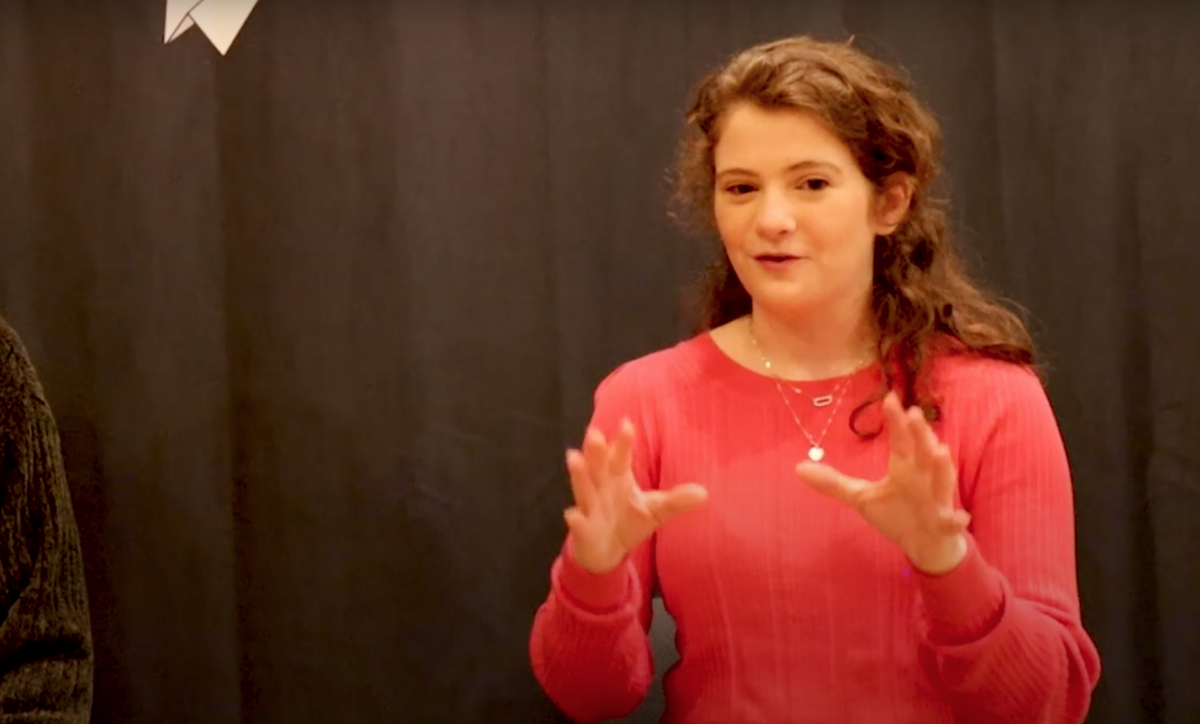Love and Sex. It’s all so confusing in this world of dating apps and #metoo activism and phone porn and casual hookups. Having sex and falling into a relationship has never been easier — or more difficult, depending on who you ask. Ever helpful, your Memphis Flyer staff has ventured out into the fray, interviewing actual combatants and the occasional expert to give you the lay of the land in 2018. Some of it is tongue-in-cheek (ahem) and some of it is solid advice. But one bit of eternal wisdom still prevails: Be careful. It’s a jungle out there.
12 New Rules
Hey man, it’s 2018, and dating apps are getting old! You’ve met everyone in your age range within a 19-mile radius already, so it’s time to meet your next lovable loser in a new way. Sure, you’re single this Valentine’s Day, but if you learn these fresh rules, you won’t be by, say, Memorial Day. Think about it: Come 2019, you’re not going to want to spend the nuclear holocaust in your sad, pathetic bunker alone. Listen up. Here are …
12 New Rules
1. Discuss your newfound sobriety on various social media platforms. This is going to garner you way more attention and thus land you more dates than drunkenly hitting on someone at the old Melange bar ever did!
2. Experiment with Snapchat filters to smooth out your skin, make your eyes look brighter, and attract the type of mate who’s into humans with big ears and wagging tongues. Of course, when all your kids join the Furry community, you’ve only yourself to blame, Snap-people.
3. Honesty is the best policy, so lay all your cards on the table! No, really, lay these Bingo cards on the table. It’s Memphis Eskimo Brother/Eskimo Sister Bingo, and I’m accepting donations to my GoFundMe.
4. If there’s one thing that always breaks the ice, it’s some good sports talk. Are you Team Tank the Grizzlies or not? Argue with your date about it. Make a scene in public. Fool around later anyway, regardless of whether a consensus was reached.
5. Be Chandler Parsons. That’s a pretty good rule for dating in 2018. If you can’t be Chandler Parsons, try to have a strong jawline and $94 million on hand.
6. Support local businesses by having food delivered via UberEats as often as possible. The more your order, the higher the likelihood the driver will call you and ask which crib is yours. Getting someone to come over is half the battle!
7. Let that lack of originality flag fly! Alert your love interests that you’re a boring hack ahead of time by demanding date ideas on Facebook and ending the post with “… aaaand GO!”
8. Attend a protest together. Meet at a protest. Meet at a rally. Adopt a rescue dog and flirt with the foster parent. Whatever it is, you’re guaranteed explosive civic-minded sex afterward and, if you’re lucky, a halfway decent egg-white omelet the next morning.
9. It’s the year we’ve all been waiting for! Now that you’re over 30, your friends’ exes are fair game. Fair, desperate, sad game. Go for it.
10. Get a divorce. If you’re on the fence, go ahead and hop to it! If my research proves true, divorced people are at a higher risk of being in another relationship very quickly. Marriages are like strokes: With each one, the next one becomes more probable. You just have to take that first teensy-weensy step into Divorce Land to get this ball rolling!
11. Date the boss. You’re both screwed if anyone finds out, so let that secrecy serve as the cornerstone of your relationship. Plus, aren’t you running out of options here?
12. Quit going to the gym. Has that ever worked as a way to meet people? It’s a trick question because, yes, it has probably worked exactly one time: for that sporty couple that lived next door to the Griswolds in National Lampoon’s Christmas Vacation. Why would you want to be like them?
Now, there’s no need to thank me. I know you’re blown away by my insight, but this is probably a good time to tell you that I’m not very good at taking my own advice and, come to think of it, was single all of 2017 and thus far in 2018. But this is the year that I take the bullshit by the horns! I’m following these rules, and I’m going to make dreams come true! — Meghan Stuthard
Treat Your Waitress Like A Human
#Metoo is hopefully giving new guidelines on sex and consent to any man out there who might not understand “no” or “stop.” But some of those same men need a sit-down about how they treat their servers.
Most get it. Tennessee restaurants can pay an hourly rate as low as $2.13. Your server is hustling, not flirting. But some don’t. To them, servers are Westworld robots built to serve, of course, but also to be viewed, and to, perhaps, hear of a lusty notion that crosses the mind.
For clear answers on diner conduct, I turned to experts — Hooters girls. Sex (at least sexiness) is threaded in their company’s DNA. Here are some short answers (for Hooters, at least). Look, don’t ogle. Flirt, don’t talk dirty. And never, ever touch a Hooters girl.
The lunchtime crowd at Hooters downtown last week was largely bearded, hard-hatted, or camouflaged. Despite the environment’s invitation to fun, the crowd was sedate, almost boring. Whoa. Hooters has changed, I thought.
But lunchtime was usually pretty straight, I was told. Though I caught a few eyes flicking up and down at the girls, the guys mostly looked at their phones or watched TV.
The nighttime crowd was a different story, though. That crowd was why my bartender said she liked to work days. She didn’t say how they were different, exactly, but her deep eye-roll said enough.
A Midtown server told me that diner conduct hasn’t changed much after #metoo. She never gets hit on at one job, but at the other, “there’s sometimes the drunken ‘take-it-too-far’ dudes that will make comments or try to hit on me [badly].”
Another former server said she never experienced any sexual harassment, really, but for the occasional “you’re hot” written on receipts. But she pointed me to the Missed Connections portion of Memphis Craigslist that had one man searching for a Huey’s waitress with a black hat and hair in a pony tail. “You are absolutely stunning,” the man said.
But let’s get serious for a minute.
The restaurant industry has one of the highest rates of sexual harassment, according to a 2014 study by the nonprofit Restaurant Opportunities Centers United (ROCU). Now, since #metoo, more restaurant workers are coming forward. That study found that 78 percent of the hundreds of female servers interviewed said they’d been sexually harassed by a customer.
But it’s not just customers. Restaurants’ top ranks — owners, chefs, managers — are male-dominated, according to the ROCU report. Females largely comprise front-of-house roles, like servers. This makes restaurants ripe for bad behavior, the report said.
In 2016, Cheddar’s Casual Cafe paid $450,000 to 15 people here because the company allowed a hostile work environment at its Winchester Road location. Managers sexually harassed female employees, “made requests for sexual favors and explicit sexual comments, and subjected female employees to unwelcome touching.”
— Toby Sells
The Break-Up Expert
If you want to talk about dating, check with Savannah Bearden. She does a comedy show called “The Break-Up Show.”
“It’s an ensemble cast with six of us and we get real stories, real texts, emails, screenshots of Tinder messages people send us, and we read them out loud,” she says. “We give commentary. We re-enact bad dates.”
As far as the material, Bearden says: “No matter what your age, you can understand it.
“I think it’s the realization that certain people actually exist in the world. One of my favorite bad dates that we re-enact: The guy picks the girl up. She’s really already drunk at 6:30 p.m. They go have sushi. The entire date he’s hearing this monologue of racial slurs. She also talks about her mother, who she refers to as a pill popper.
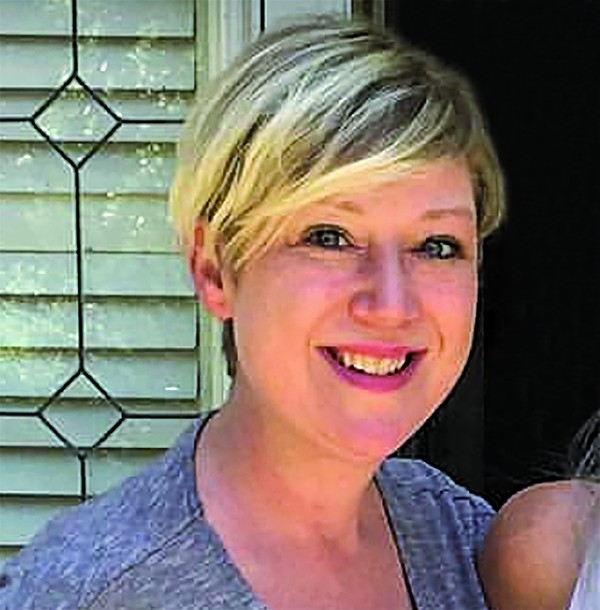
Savannah Bearden
“And then she starts sobbing at the table. It’s so weird. Then he hears her say, ‘I just love Jap food, but I hate Japs.’
”Then he goes to drop her off. He doesn’t want to come inside. He hugs her, and she bites him on the neck and runs out of the car.
“People hear a story like that and they think, ‘This can’t be real.’ Pretty much the thread that runs through the show is, ‘It can’t be real.’
“I would say 75 percent of our show is submissions from dating websites, crazy messages you get and weird interactions. It’s become so pervasive. We’ve never run out of material. As for dating sites, it’s 95 percent men. They’re ridiculous. They say terrible things.
“A guy may write, ‘You’re so beautiful’ and other flowery comments when he messages a woman. “If the girl politely declines, ‘Not interested,’ the guy goes ‘Okay, whatever, bitch.'”
So, what’s Bearden advice for people who date? “I think just be a normal human being. Be someone who wouldn’t freak you out. If your flavor of crazy mixes with another person’s flavor of crazy, I think it all comes down to that.” — Michael Donahue
A Primer on Dating Apps
If you’re looking for companionship, odds are you’re looking online. Apps like Tinder and Bumble, have become indispensable dating tools. After a Facebook post asking for people to share their experiences, I was inundated with responses. Here’s what they had to say about online dating dos and don’ts.
What attracts people to your profile? Appearance certainly counts, but the way you present yourself counts more. The most frequently mentioned turn offs for women were men holding guns and dead animals. (“I don’t know why men are so into posing with dead fish, but they are.”) Men with no pics of themselves is a red flag for women (“That’s a sign that they’re married.”), as are group pics. (“It’s like they’re trying to hide behind their hotter friends.”) As for the guys, they’re sick of seeing selfies with Snapchat filters. (“Can you politely suggest women stop doing this?” read a message with two dozen pics attached.)
The biggest turnoff for both sexes? Trump supporters.
Most men reported feeling like they were expected to send the first message, but women reported sending the first message about half the time. Both sexes reported liking Bumble’s requirement that women send the first message. As one man says, “When guys are hiding behind the internet, they can really be creeps.”
Nearly 100 percent of women report receiving unsolicited penis pics. “They’re not asking for anything in return. They’re just sending them. What satisfaction are they getting? I don’t know.” Another woman said, “I think men think, ‘I like my dick so much, why wouldn’t you like a picture of my dick?'”
One respondent reported receiving an image of a man’s fresh gunshot wound. Others quickly tired of the avalanche of come-ons. “I would be on OK Cupid for a few minutes, and it was just ‘Hello, hello, hello’ And then you get someone who asks if you will pee on them.”
Opening messages that work tend to be conversation starters demonstrating genuine interest, such as questions about mutual interests. “Don’t lead with ‘I think you’re very attractive.’ Lead with ‘I read in your profile that you’re a film buff. What are your favorite films?'”
Try to spell correctly. (“You wouldn’t apply to a job stating that you’re ‘gud @ makin koffee in shit’, so don’t apply for access to my sex organs with ‘luv 2 make out’.”)
If things are going well, the next step is to exchange phone numbers. (“THE PHONE NUMBER IS SACRED! Treat it like the Ark of the Covenant. You wouldn’t smear your dick all over the Ark, so don’t smear it on my phone.”)
A couple of women said rejection at the messaging phase triggered stalking behavior in a man, with one saying the stalking persisted for two and half years, and another reported being physically threatened by a neo-Nazi from Southaven. One woman said she thought the #MeToo movement has had some impact on men’s behavior, but not enough. “Men are being more polite when they use the apps, because they know it can be screen-shotted. But in person, it’s the same old ‘Boys will be boys’ bullshit.”
There are different standards when it comes to setting up a meeting, but the most commonly mentioned time-frame was after a week of exchanging texts. (“Anything beyond that feels like sneakiness.”)
It’s in-person where the real horror stories come out. One woman with a “strict two-drink limit” reported being drugged by a date who ordered her a drink before she arrived. “Never let your drink out of your sight,” she says.
But while it often feels like dating apps are, as one woman put it, “playgrounds for emotionally unavailable, narcissistic clowns,” almost most say the experience has been generally positive. (“Two of the men I met on Tinder are now my really good friends. It proves women and men can be friends with boundaries.”)
One man says he was about to uninstall the app when he got a “detailed and intriguing message” from a woman, and it was “love at first sight. It’s kind of funny that it would happen this way, because neither one of us thought it would.” — Chris McCoy
Dating Etiquette: Survey Says!
Bad teeth, bad breath, and bad attitudes are the top turn-offs in a potential partner, according to the results of a recent Flyer survey of 100 30-ish and younger Memphians. Lies, arrogance, and aggressiveness, along with open-mouth chewing and shrill voices made the list, too. But we didn’t just set out to determine what pushes people’s buttons, we wanted to examine today’s dating etiquette as male and female roles, among other norms, change in society.
When it comes to making the first move, 63 of the respondents said it’s acceptable for the guy or the girl to go for it these days. Still, 61 percent thought that the guy should pick up the bill on the first date, while about a quarter said whoever plans the date should pay for it, and 15 people thought it’s okay to go Dutch.
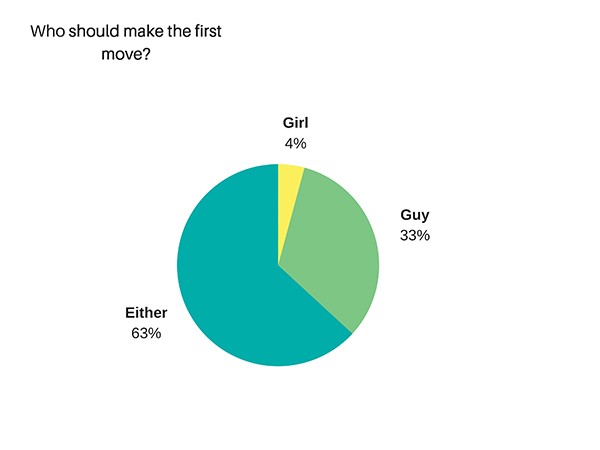
So, it’s fine for a girl to ask a guy out, but it looks like most agree that the guy should still sponsor the first date no matter what.
We were also interested in learning where young singles go to mingle and meet potential partners. We found that even in the age of Catfish castastrophes and Craigslist Killer casualties, more than 30 percent said they’d still be willing to meet someone online.
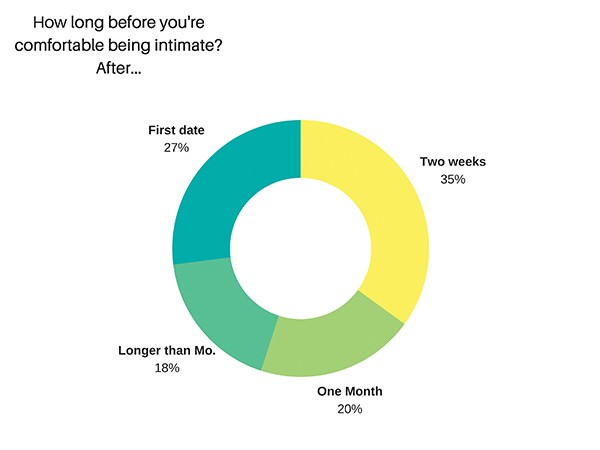
Among our respondents, the women were twice as likely as men to look online to meet a significant other.
Other top spots to meet that special someone include social events, school, work, church, and bars.
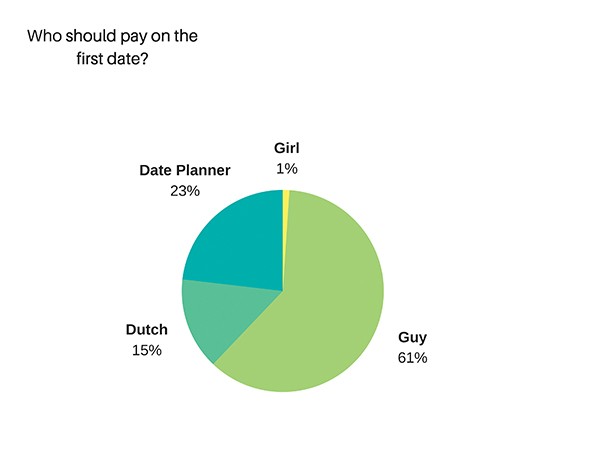
Once the dating commences, a whopping 74 percent said they prefer to date exclusively, as opposed to dating around. And this was the one question that received almost identical responses from both sexes.
Finally, if you’re looking to get lucky, about 35 out of the 100 folks said they’re comfortable with being intimate with a new partner after two weeks, while 27 percent are ready to knock off some bases on the first date.
— Maya Smith
Memphis: Porn Again
Over at Pornhub, Memphians searched most for the term “ebony” in 2014. That was followed, in order, by “black,” “lesbian,” “cartoon,” and “massage.” The city’s favorite porn star that year? Lisa Ann, whom Pornhub describes as a “perennial MILF favorite.”
All of these insights, are the thanks to the latest numbers from Pornhub’s number crunchers. The powerhouse porn site keeps up with America’s kinks over at a related site called Pornhub Insights.
In 2017, Tennesseans most commonly misspelled the search term “porn” as “porm.” But so did New Yorkers, Californians, Idahoans, and a bunch more. It’s not as bad, maybe, as commonly misspelling “lebsiam” (Texas), or “ewbony” (Florida), or even “anature” (Mississippi). But the site gave Mississippians props for having the longest average viewing time of folks in any other state.
Last year, Tennesseans searched most for the term “cartoon,” same as Arkansas, Nebraska, and Vermont. These states were outliers, though, as most other states searched for “lesbian,” “step sister,” and “step mom.” Across the southeast, though, “ebony” was the dominant search term, while “teen” and “lesbian” blanketed much of the rest of the country.
Pornhub Insights also reports that traffic increases in Southeastern Conference (SEC) cities when the students return. Female traffic plunged in Washington, D.C., during the Women’s March this year. Searches for porn star Stormy Daniels skyrocketed after news of her affair with President Donald Trump emerged.
All traffic in Hawaii plummeted 77 percent below normal during the minutes of the missile alert last month, but it surged up 48 percent more than normal in the minutes immediately following it. — TS
